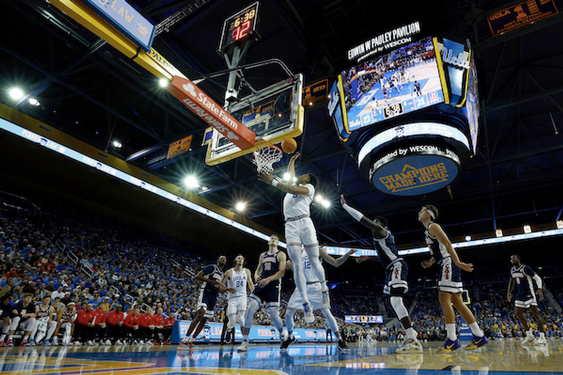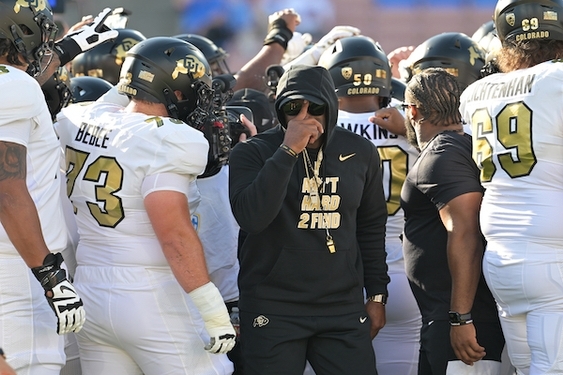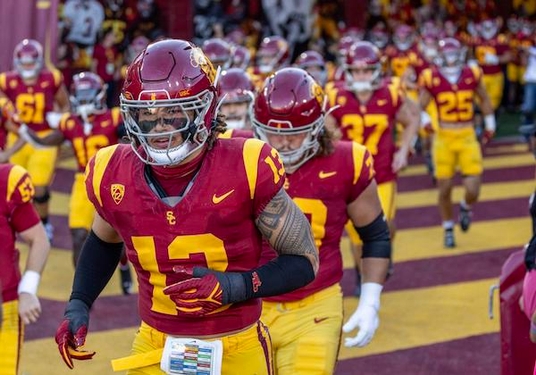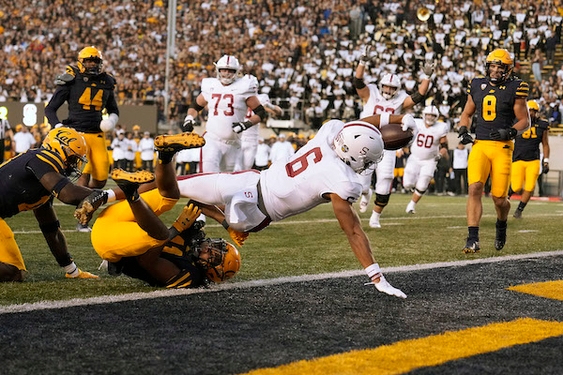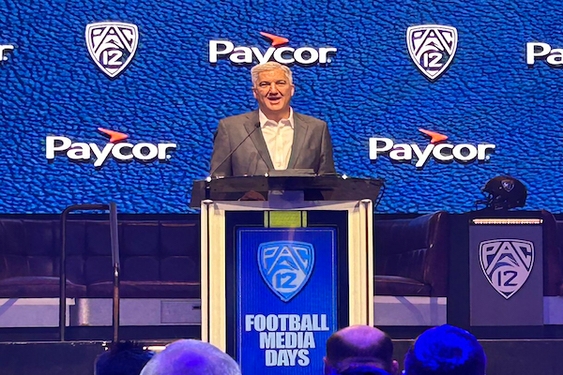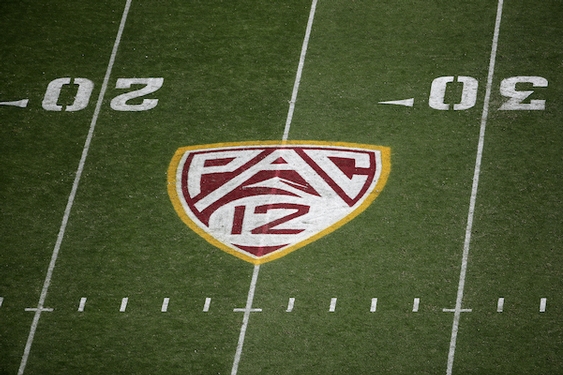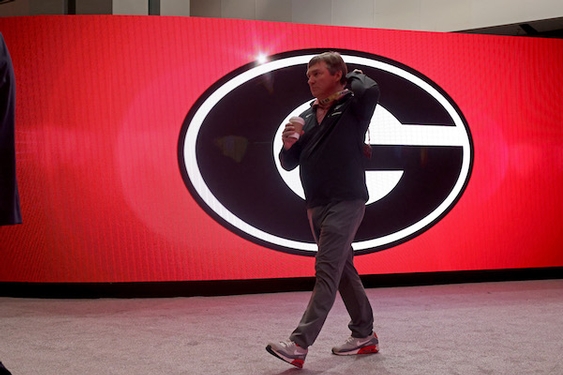Lindsey Vonn
(United States) Alpine skiing
Blond hair, great smile, winning with shocking regularity, including five downhills and six super G races this season. “America’s Best Woman Skier Ever,” reads the cover of Sports Illustrated that proclaims her the face of the Olympics. Her resume backs the claim: back-to-back World Cup overall titles and winning three straight races in January with her arm in a sling.
Vonn, 25, will race all five alpine events and will be a gold-medal favorite in the downhill, super G and super combined. But did the major media outlets learn nothing when they proclaimed Bode Miller the face of the 2006 Olympics?
Unlike figure skating or biathlon or round-robin hockey, there are no second chances in skiing. One fall and the quest ends. Skiers fall a lot, often breaking a bone in the process. But the risk adds trainwreck appeal which Bode illustrated four years ago when he came home with no medals in five events but a lot of hilarious bar stories. If the tragedy sells as well as the triumph, though, maybe NBC’s onto something here.
Shani Davis
(United States) Long track speedskating
Four years ago, Davis became the first African-American to win a gold medal, and he could up the ante this year. He’s favored in the 1,000 and 1,500 meters, in which he holds the world records, and has entered the 500 and 5,000 as well. U.S. teammate Tucker Fredricks is more likely than Davis to medal in the 500, and Sven Kramer of the Netherlands is the favorite in the 5,000.
Kim Yu-Na
(Korea) Figure skating
Kim, 19, is the reigning world champion and gold-medal favorite, though she’ll be pushed by Japan’s Mao Asada and Miki Ando. What’s missing from this picture? An American presence.
U.S. skaters Rachel Flatt and Mirai Nagasu are relative newcomers to this level of competition, so the U.S. audience could witness the first figure skating podium without a U.S. woman since 1964. How will that sell in an event that traditionally pulls the largest ratings of the games?
Apolo Anton Ohno
(United States) Short track speedskating
What a story arc: teenage miscreant to Olympic dynamo to ballroom king to Olympic legend. Competing in his third Olympics, Ohno, 27, is on a quest; he needs to win two more medals to break Bonnie Blair’s record of six and become the most decorated U.S. Winter Olympian.
He ranks third in the current World Cup standings, won a silver at last year’s world championships in the 1,000 meters and is even more motivated to win in Vancouver, close to his boyhood home in Seattle. Given the frequent falls and multiple elimination rounds, short track is even more unpredictable than alpine skiing, and he’ll face stiff competition from the Chinese, Korean and Canadian skaters.
Shaun White
(United States) Snowboard half-pipe
Sixteen victories in the X Games, 10 on the Dew Tour, defending Olympic gold medalist, White dominates his discipline like few other athletes. He thrilled the crowd at the X Games with his new trick, a Double McTwist 1260. The dude successfully landed it just hours after whacking his head and chin on the edge of the pipe on a missed attempt that left him “seeing stars.”
Yet his first comment on watching the replay was that his hair looked good when he popped up. The charismatic White, 23, nimbly toes the line between mainstream success and quirky individuality that makes the snowboarder hard to resist.
Andre Lange
(Germany) Bobsled
Lange has dominated in recent Olympics, winning both events in Turin and the four-man in Salt Lake City. A former luger, Lange hopes to become the first bobsledder to win four gold medals. Standing – or sliding – in his way is Steve Holcombe and his U.S. “Night Train,” the reigning four-man world champions.
Martins Dukurs
(Latvia) Skeleton
The hottest slider in the world, Dukurs, 25, earned four gold medals and the overall title in the recently completed season. Don’t be surprised to see his brother, Tomass, appear on the podium as well, with their coach/father, Dainis, beaming in the background.
Ole Einar Bjoerndalen
(Norway) Biathlon
At his fifth Olympics, Bjoerndalen can still outski and outshoot the pack on most days. He has won nine Olympic medals, including a sweep of four golds in 2002, more World Cup gold medals than any other winter athlete and has earned the title Biathlon King. Already immortalized in bronze, Bjoerndalen might ask the folks in his hometown of Simostranda to dip the statue in gold if he leads the pack again. For the first time, though, he’ll have Americans nipping at his heels, including two-time overall world cup leader Tim Burke.
(c) 2010, St. Louis Post-Dispatch.
Distributed by McClatchy-Tribune Information Services.




